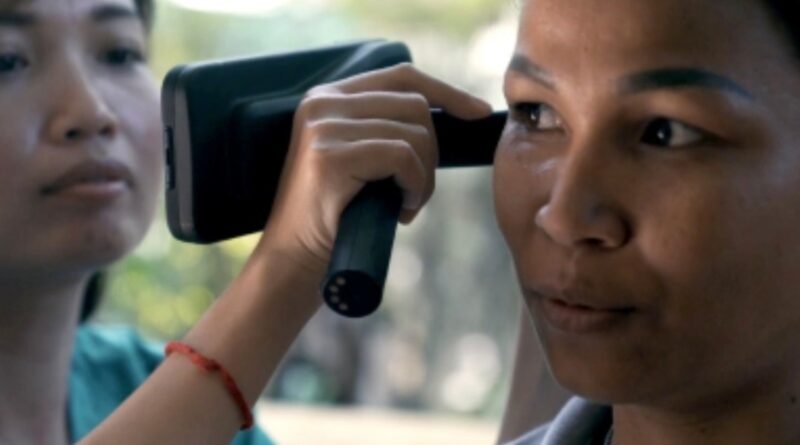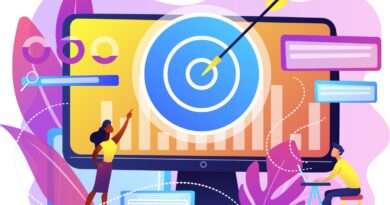UK’s TympaHealth sounds out $23M to expand its hearing diagnostics startup
The basic principle of Moore’s law — computing becoming more powerful yet more compact — is playing out in a number of fields, and one of the latest is coming from the world of audiology technology.
TympaHealth, a London startup that has developed handheld hardware built around streamlined iPhone and Android devices, and corresponding software, to run hearing tests — tests would have previously required specialists, a range of larger and more expensive equipment, and purpose-built clinics — has raised $23 million in funding to expand its business.
Octopus Ventures is leading the round, with participation also from new backers Dara Capital, Rezayat investments, and serial entrepreneurs Bob Davis and Jeff Leerink; as well as previous backers.
Notably, the startup raised an $8 million seed round in February 2022 from a well connected set of individuals that included the VC Jim Breyer, the former head of Apple Health Anil Sethi, and others; it’s not disclosing which previous backers are participating in this latest Series A.
Tympa is not disclosing its valuation but according to figures in PitchBook it is around $62-$65 million with this latest funding. (The market is tough for startups raising right now, so the more modest number is not too surprising.)
The funding is going to be used to in its home market and also in the U.S., where Tympa believes it has a big opportunity to provide an easier route to hearing tests in a market where hearing aids are going to become much more widely available, thanks to new FDA rules that will allow them to be sold without a prescription, over the counter.
So far, the company has been seeing some interesting traction. In the U.K., more than 250,000 patients have had their hearing tested with its devices across audiology labs, but also hundreds of pharmacies (including major chains like Boots), care homes and clinics.
Although Tympa was originally hatched in an NHS incubator, ironically most of its users to date have been through private (that is, paid) visits that cost between £50-£60 per exam.
Part of that may be down to the price and business model around the product: the hardware and software are both sold on an SaaS model, where the customer (not the patient but the user administering the test) pays an up-front fee of about £200 that includes training and set up fees, subsequently paying around £60/month for the continuing service and use of the devices. Prices in the U.S. are likely to be higher due to how insurance works in that country.
With its positive track record, Tympa is also now starting to work with NHS trusts, too (where the tests will be subsidized by the country’s health service).
“Using a high-quality product and a proposition geared around the consumer, they are reducing the burden of ear and hearing care in an overstretched NHS, while vastly improving patient experience and outcomes,” said Joe Stringer, a partner at Octopus Ventures, in a statement.
In the U.S., where Tympa has already received FDA approval, it has also been running a trial ahead of a wider business development push.
Dr Krishan Ramdoo, the founder and CEO of the startup, is a former ear, nose and throat surgeon, and he said that he started the company out of his direct experience with encountering patients who were not getting regular check-ups for their hearing, and were missing out on getting issues like hearing loss, or even just excessive wax build up, identified and addressed in a timely way.
Ramdoo was working in the UK’s National Health Service at the time, and while the organization has a strong reputation for providing socialized medicine to UK residents, it’s also been trying to lean into more innovative practices. One of those was building an in-house incubator, where Ramdoo started work on his concept.
The device it’s built is based around a smartphone — currently it has a version that works with an Android device and a version that is based around an iPhone — but essentially the phone is no longer a phone: the startup has developed apps for iOS and Android that run on the devices.
Those devices are in turn integrated into a larger piece of hardware, a shell of sorts with an improved lens and otoscope to probe into an ear, a processing unit to gather and organize the data — running machine learning and algorithms to determine conclusions from the diagnostics — and a micro-suction system, which can remove wax in the ear.
I thought it was interesting how far Tympa had doctored — so to speak — these smartphones. Ramdoo said that they’d reached out to both companies, and neither had any issue with how the startup was tweaking their devices, nor have they made efforts — yet — to get more involved with what they’re doing.
That will be something to watch. Although we have not heard (pun intended) much about what Google and Apple are doing in the area of audiology, both have a strong interest building out a deeper set of services in the area of health.
Both Apple and Google have worked with other hearing technology specialists — Denmark’s GN Hearing has worked with both companies to build hearing aid devices and related technology that work more seamlessly with their smartphones. And while current economic tides, and perhaps other projects, may mean that moonshots are getting less attention and funding — the last big updates from Google’s Project Wolverine were in March 2021, for example — Ramdoo believes that they are still in the pipeline.
“The idea of iPods as hearing aids is coming,” he said.
In the meantime, he said that all the major companies building audiology technology are in touch, too, potentially for better data integrations and maybe also, down the line, to develop more personalized and sophisticated hearing technology based on the diagnostics that Tympa is able to collect.
“We’re bringing more people into the funnel who will need more hearing aids,” Ramdoo said. Previously, all of the different ecosystems that were focused on hearing — from clinicians through to those making hearing aids, to the hospitals and care homes that were the first port of entry for patients — were all in silos, he added. “We are helping to collect all that data under one umbrella.”
UK’s TympaHealth sounds out $23M to expand its hearing diagnostics startup by Ingrid Lunden originally published on TechCrunch





